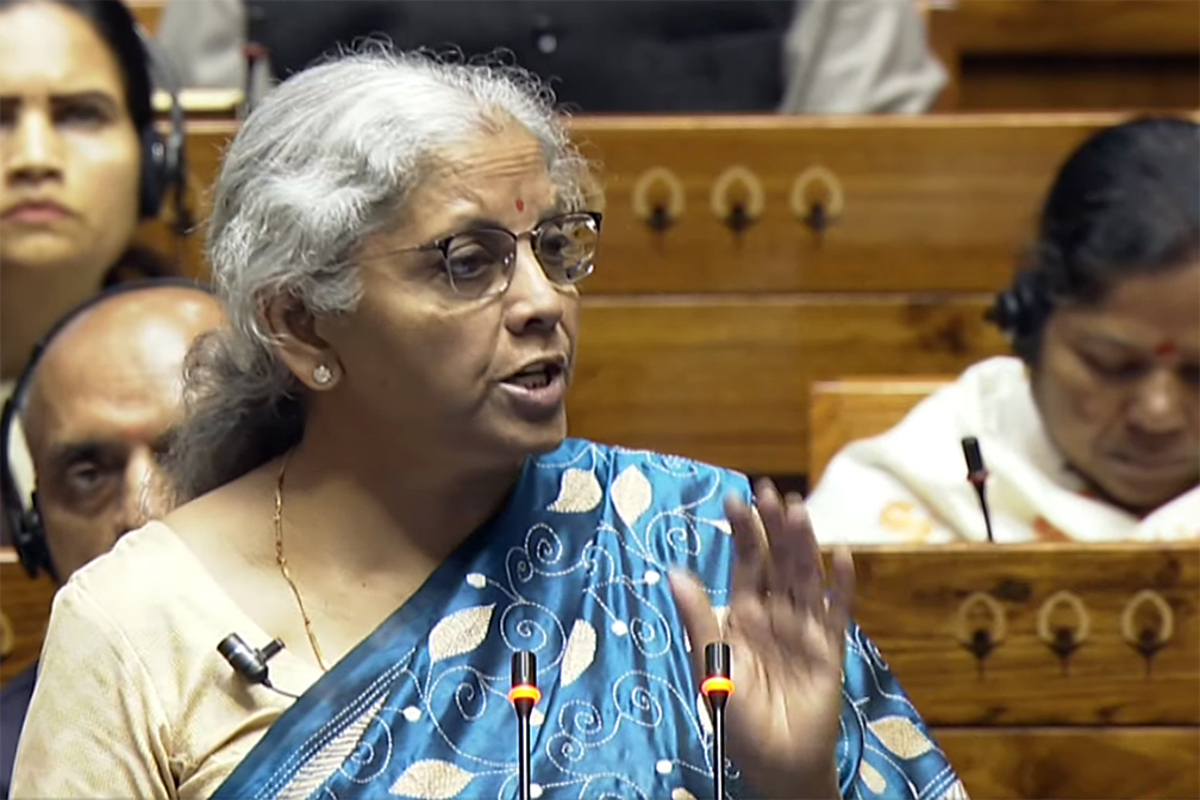Finance Minister Nirmala Sitharaman is set to present the Union Budget 2024 in Parliament today, marking her seventh consecutive budget and eclipsing the late Moraji Desai’s record of six consecutive budgets, which is likely to focus on changes in the income tax structure and improving the ease of doing business in India.
At 11 am today, the much-awaited full budget for 2024-25, the first under the Modi 3.0 government, will be presented on the floor of the Parliament.
All eyes will be on the major announcements made by the finance minister and the government’s forward-looking guidance about the overall economy.
Sitharaman will lay on the table a statement (in English and Hindi) of the estimated receipts and expenditures of the government for the year 2024-25 in the Rajya Sabha.
She will table the budget one hour after the conclusion of the presentation of the Union Budget 2024-25 in the Lok Sabha.
Advertisement
The Finance Minister also lay on the table, under subsection (1) of Section 3 of the Fiscal Responsibility and Budget Management Act, 2003, a copy each (in English and Hindi) of the following papers: medium-term fiscal policy strategy statement and macro-economic framework statement.
The Finance Minister will further lay on the table statements (in English and Hindi) of the estimated receipts and expenditures (2024-25) of the Union Territory of Jammu and Kashmir (with the legislature).
The interim budget, tabled on February 1, took care of the financial needs of the intervening period until a government was formed after the Lok Sabha polls, after which a full budget was to be presented by the new government.
With this upcoming budget presentation, Finance Minister Nirmala Sitharaman will surpass the record set by former Prime Minister Morarji Desai, who presented five annual budgets and one interim budget between 1959 and 1964 as finance minister.
The budget session of Parliament began on July 22 and, according to schedule, will end on August 12.
Before presenting the Budget, the finance minister will go to the North Block, where the Ministry of Finance is housed.
She will meet the secretaries of her ministry, and later, along with them, she will reach the President’s residence to get permission before presenting the Budget.
About half an hour before the budget is presented, a Cabinet meeting headed by the prime minister is usually held, where ministers are briefed about the budget and Cabinet approval is taken.
Putting aside the details of the upcoming budget, let us review the budget-making process and sequence of events typically followed.
The Ministry of Finance typically issues circulars to all ministries, Union territories, States, and autonomous entities to send their demands and recommendations for the Union budget around September-October, with budgets typically tabled on February 1.
Another key event before the budget presentation is the ‘halwa ceremony’. A few days before the budget is presented, the government has a tradition of conducting a ‘halwa ceremony’, marking the start of budget document printing.
The Halwa ceremony is significant as it also marks the beginning of a lockdown at the finance ministry, meaning no official is allowed to leave the ministry compound. Everyone on the budget team is allowed to leave only after the financial document is presented in Parliament. The printing of the Union Budget inside the basement located in the North Block has been a permanent feature since 1980.
A day before the budget is scheduled to be tabled, the government typically releases its Economic Survey. This year, too, the same norms were followed. The Economic Survey serves as a crucial input for budget formulation. It is prepared by the Chief Economic Advisor and provides an overview of the country’s economic performance, prospects, and policy recommendations, including future outlook.
India is poised to remain the fastest-growing major economy in 2024-25, Chief Economic Adviser V Anantha Nageswaran said in a press conference after the tabling of the Economic Survey. The Economic Survey tabled projected India to grow at 6.5-7.0 percent in 2024-25.
As per the Economic Survey 2023-24 tabled by Finance Minister Nirmala Sitharaman, the Indian economy is on a strong and stable footing, demonstrating resilience in the face of geopolitical challenges.
The first Economic Survey reportedly came into existence in 1950-51, when it used to be a part of the budget documents. In the 1960s, it was separated from the budget documents and presented a day before the Union Budget.
The budget, once it is presented, is then subjected to detailed debate and discussion in both houses of Parliament, allowing members to scrutinise its provisions, raise concerns, and propose amendments. Following its presentation and approval by Parliament, the Union Budget sets in motion a series of post-budget activities aimed at implementing its provisions and achieving the outlined objectives.
Like the previous few full Union budgets, the Budget 2024 will also be delivered in paperless form. An Interim Union Budget 2024 was presented on February 1, as the country was due for general elections later in the year.
All the Union Budget documents, including the Annual Financial Statement (commonly known as the Budget), Demand for Grants (DG), and Finance Bill, as prescribed by the Constitution, will be available on the “Union Budget Mobile App” for hassle-free access to budget documents by Members of Parliament (MPs) and the public.
The app is bilingual (English and Hindi) and available on both Android and iOS platforms. The app can also be downloaded from the Union Budget Web Portal (www.indiabudget.gov.in).









